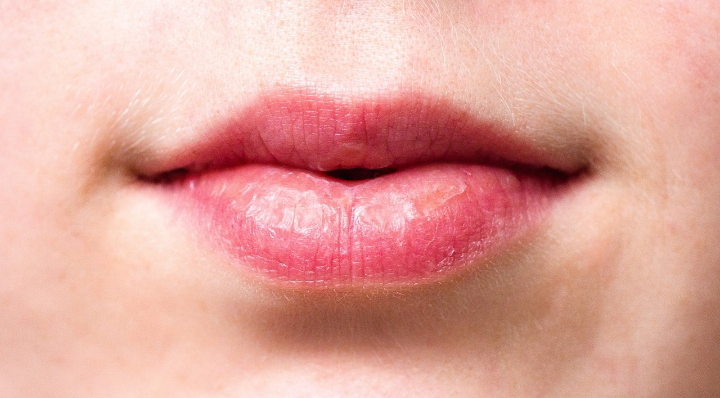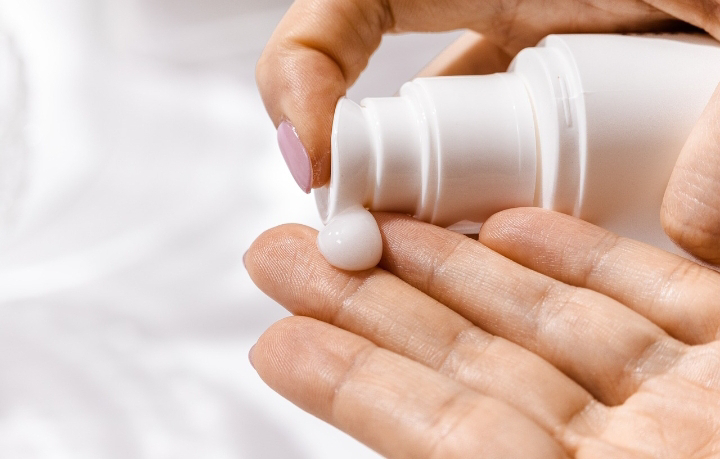Dehydration in Winter: Why It Happens and How to Prevent It
Dehydration in Winter: Why It Happens and How to Prevent It
By
Monica Saxena
| Wellness Blogger| Certified in
Holistic Health & Nutrition | Fully Accredited Professional Nutritionist |
Winter dehydration refers to a state where the body loses more fluids than it receives during cold weather. Since sweating is less obvious and thirst signals are reduced in winter, many people unknowingly drink less water. As a result, the body gradually becomes dehydrated.
Hydration is essential throughout the year, irrespective of the climate. Whether it is summer or winter, the body needs an adequate amount of fluids to function properly.
Factors leading to winter dehydration
Winter dehydration is a silent but very common problem. Several factors contribute to winter dehydration; let's find out more about them:
1. Low Humidity:
During the winter season, you will notice that the cold air is typically dry, and indoor heating can further exacerbate the reduction in humidity levels. The dry air can lead to increased evaporation of moisture from the skin and respiratory passages, contributing to dehydration.
2. Reduced Thirst Perception:
When the climate outside is extremely cold and the temperature is low, the body's sensation of thirst starts to diminish. Many of you may not feel as compelled to drink water; most people typically forget to drink water, even when their bodies require hydration. Despite dehydration, some of you might be shivering with cold with no thirst sensation.
3. Increased Respiratory Water Loss:
Breathing in cold air can lead to increased respiratory water loss. This is particularly relevant for individuals who spend extended periods outdoors during winter.
Cold weather may prompt an increase in respiratory rate as the body works to meet the oxygen demand. Higher breathing rates can contribute to greater water loss through respiration.
4. Diuretic Effects of Winter Beverages:
During the winter, many people consume too many beverages like coffee and tea to stay warm. If you are fond of your hot tea and coffee spree, better watch out, as too much indulgence may take away internal hydration from your body.
While these beverages contribute to overall fluid intake, they can also have diuretic effects, which means excess urination throughout the day, leading to increased urine production and potential dehydration.
5. Indoor Heating Systems:
Central heating systems and fireplaces used indoors can contribute to a drier environment, promoting fluid loss through the skin and mucous membranes. Most heating systems, such as forced air and central heating, tend to dry out the air in enclosed spaces.
As the air gets heated, its ability to hold moisture increases, leading to lower relative humidity levels. Dry air can accelerate the evaporation of moisture from the skin and respiratory passages, contributing to dehydration.
6. Winter Sports and Activities:
Engaging in winter sports and activities, such as skiing or snowboarding, can increase the risk of dehydration due to increased physical exertion and potential sweating, even in cold temperatures. Depending on the winter sports activity, access to water may be limited. For example, if you are skiing, snowboarding, or engaging in other activities in remote areas, finding a water source may not be as convenient. Wearing layered clothing to stay warm and engaging in physically demanding activities can lead to sweating, especially if you're wearing heavy gear.
7. Inadequate Fluid Intake:
Some people may reduce their fluid intake during the winter because they don't feel as thirsty or because they prefer warm beverages like tea and coffee, which can have a diuretic effect.
Keeping a water bottle with you, even when you're indoors, is essential in such cases. This makes it easier to stay hydrated and serves as a visual reminder to drink water. Proper hydration is crucial for overall health and well-being, regardless of the season.
Symptoms of Winter Dehydration
It is better to be mindful of the early symptoms of dehydration and work on the remedial action. Elderly people and young kids are especially unaware of what their bodies are going through during the winter season; parents and caregivers should be cautious of that. Detecting dehydration during the winter season involves paying attention to both physical symptoms and changes in behaviour. Here are some signs to watch for:
1. Dark Urine:
Dark yellow urine is often a sign of dehydration. Inadequate fluid intake can concentrate the urine, causing it to become darker. Pay attention to the colour of your urine; a light yellow or pale straw colour indicates proper hydration.
2. Dry Skin and Lips:
Dehydrated individuals may experience dry and flaky skin. Lips can also become chapped and dry. If you notice changes in the texture of your skin or lips, it could be a sign of dehydration. In older people, you can easily notice dehydration through the dry skin of their hands and palms.
3. Paying Attention to Thirst:
While it may seem obvious, paying attention to your thirst level is crucial. If you feel thirsty, your body is signalling that it needs more fluids. Don't ignore this signal, even in colder weather. If you are forgetful, it is better to set a reminder on your cellphone to hydrate at regular intervals. If you don't find time to drink water during your busy hours, keep a water bottle nearby.
This will remind you to drink water at regular intervals and help you stay away from dehydration
4. Fatigue and Lethargy:
Dehydration can lead to feelings of fatigue and lethargy. If you find yourself unusually tired or lacking energy, it may be worth considering whether dehydration is a factor. As often lack of fluids can make you exhausted, and this is the most important sign to detect dehydration.
5. Headache:
Dehydration can cause headaches. If you experience an unexplained headache, especially when combined with other symptoms, dehydration might be a contributing factor.
6. Dizziness or Lightheadedness:
Dehydration can lead to a drop in blood pressure, which may result in dizziness or lightheadedness. If you feel unsteady or dizzy, it's essential to assess your fluid intake.
7. Decreased Urination:
Reduced frequency of urination or a significant decrease in the volume of urine may indicate dehydration. However, keep in mind that certain medications and medical conditions can also affect urine output.
8. Decline in Cognitive Functions:
Dehydration can impact cognitive function, leading to difficulty concentrating and decreased alertness. If you find it hard to focus, dehydration may be a contributing factor.
How to Tackle Winter Dehydration
If you suspect dehydration, it's important to increase your fluid intake. Water is the best choice, but warm beverages, such as herbal tea or broth, can also contribute to hydration.
If symptoms persist or are severe, it's advisable to seek medical attention. Severe dehydration can be a medical emergency and may require prompt intervention.
Tackling dehydration in winter involves adopting habits and strategies that promote proper fluid balance. Here are some tips to help you stay hydrated during the colder months:
Drink Water Regularly:
Despite the cold weather, make a conscious effort to drink water regularly throughout the day. Carry a reusable water bottle with you to make it easier to stay hydrated.
Benefits of drinking warm water during winter
Monitor Urine Colour:
Pay attention to the colour of your urine. If it is light yellow or pale straw in colour, you are likely well-hydrated. Dark yellow urine may indicate dehydration.
Consume Hydrating Foods:
Include water-rich foods in your diet, such as fruits (melon, oranges) and vegetables (cucumber, celery). These foods contribute to your overall fluid intake.
Limit Diuretics:
Be mindful of the consumption of diuretic beverages like caffeinated and alcoholic drinks, as they can increase fluid loss. If you enjoy these beverages, balance them with an increased intake of water.
Use Humidifiers:
Indoor heating systems can reduce humidity levels, contributing to dehydration. Use humidifiers to add moisture to the air, especially in rooms where you spend a lot of time.
Moisturise Skin:
Dry skin is a common winter issue. Moisturise your skin regularly to prevent excessive water loss through the skin. This can help maintain proper hydration levels.
Make your skin glow this winter
Dress in Layers:
Dressing appropriately for the weather helps regulate your body temperature and reduces the risk of excessive sweating, which can lead to dehydration. Dress in layers to stay warm without overheating.
Stay Active:
Engage in regular physical activity, even during the winter. Exercise increases your body's need for fluids, so be sure to drink water before, during, and after physical activity.
Choose Warm Beverages:
Opt for warm beverages like herbal tea, hot water with lemon, or broth. These can be comforting and contribute to your fluid intake without the diuretic effects of caffeine.
Listen to Your Body:
Pay attention to your body's signals, including thirst. If you feel thirsty, drink water even if you don't feel as thirsty as you might in warmer weather.
Establish a Routine:
Set a schedule for drinking water, especially if you find it challenging to remember. For example, have a glass of water with each meal and snack.
Remember that individual hydration needs can vary, so it's essential to listen to your body and adjust your fluid intake accordingly. If you have specific health conditions or concerns, it's advisable to consult with a healthcare professional for personalised advice.
HealthTimber Takeaway
Monitoring fluid intake, paying attention to thirst cues, and ensuring an adequate balance of water-rich foods in the diet are essential for maintaining proper hydration. —Every season matters when it comes to your health.

















Comments